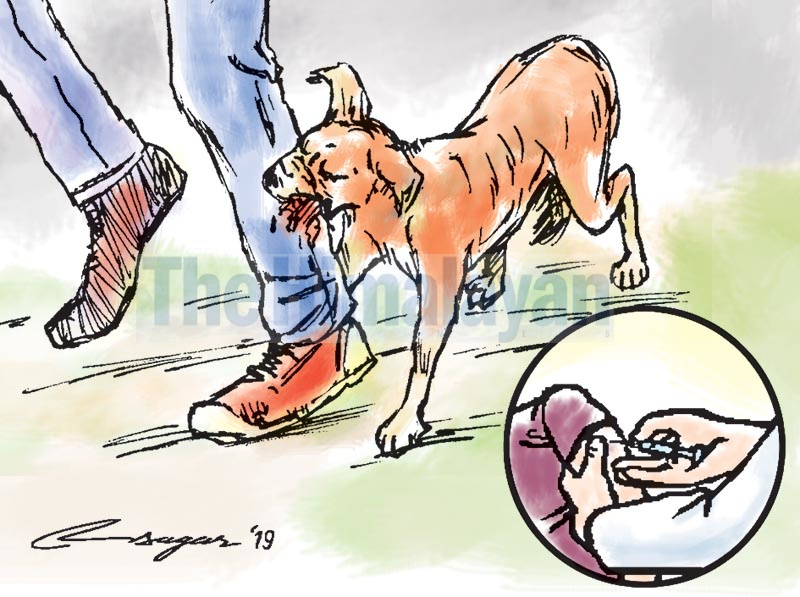Hospital receives 150 dog bite cases per day
Kathmandu, May 26
Agriculture and Livestock Department of Kathmandu Metropolitan City claims that it has effectively managed stray dogs in the capital.
However, the number of patients visiting Sukraraj Tropical and Infectious Disease Hospital, Teku, for anti-rabies vaccine has not gone down.
According to data provided by the hospital, 150 patients visit the health facility for anti-rabies vaccine every day. Forty per cent of the patients are bitten by stray dogs while 60 per cent are bitten by their own pets.
The data doesn’t include patients visiting private hospitals and clinics. “There has not been any significant change in the number of patients visiting hospital for the vaccine,”said Sher Bahadur Pun, co-ordinator of Clinical Research Unit at the hospital.
Children are more likely to get a dog bite as they poke the animal and play with it.
Compared to women, more men complain of being bitten by the animal while walking on the streets.
“Many people in the country do not visit a hospital even after being bitten by a dog due to lack of awareness about rabies vaccine.
Dog bite is usually ignored if the wound is minor and people often ignore puppy bites too.
Many people discontinue taking vaccines without completing the full dose,” said Pun, adding, “Rabies vaccine work effectively, if it is taken immediately after a dog bite.”
A record maintained by Agriculture and Livestock Department reveals that there are 82,000 stray dogs in the capital. Of them 7,840 dogs were given anti-rabies vaccine and 6,662 dogs were sterilised. The department has also imparted education to 2,092 students of 41 public schools on behaviour of a dog and bite prevention.
Despite such initiatives, doctors are doubtful about the elimination of dog-transmitted rabies by 2030, a target set by the World Health Organisation. WHO, World Organisation for Animal Health, Food and Agriculture Organisation of the United Nations and Global Alliance for Rabies Control have established a global ‘United Against Rabies’ collaboration to provide a common strategy to achieve zero human rabies deaths by 2030.
It is difficult to achieve the target on time as people here are ignorant. They should be informed about dog bite and should immediately take the vaccines if bitten by a dog. Local bodies and the health sectors too should work jointly to lessen the number of dog bite cases.
Unless people are aware about the disease, it’s difficult to completely control deaths caused by rabies, Pun said.






